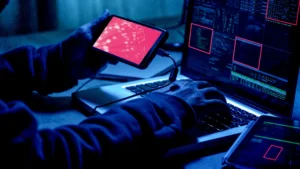
Sanura
Hacker today conjures up feelings of fear, suspicion, and fascination. Pictures come to mind of sinister figures hiding in the shadows, fingers flying on keyboards, breaking into secret systems. But behind the myths lies a hidden and fascinating subculture. Hackers are not simply cyber-villains. They are analysts, problem-solvers, inventors, and frequently, defenders of cyberspace freedom. The history of hacking is the history of how people engage with technology, stretching its limits both creatively and destructively.
Early computing owes the origins of the term “hacker” a positive connotation. In the 1960s and 1970s, “hacker” was not a pejorative. It was writing about programmers and engineers at places like MIT who were cleverly making machines perform something extra from what they were initially designed to do. It was curiosity and innovation. It was the early hackers who loved to dig into the systems, search for shortcuts, and optimize for performance. They viewed technology as an open arena to tinker. It was this sense of curiosity that bred the origins of today’s computing, like open-source software and the early internet.
As the technology developed, hacking began to turn into a darker enterprise. The 1980s were a turning point. Personal computers were now within reach, and networks began connecting around the globe. Some began to employ their technical expertise for gaining unauthorized access, probing systems not just out of mere curiosity but for challenge or profit. Films like WarGames (1983) popularized teenage hackers who broke into military computers as the talk of the town, straddling the fence of infatuation and terror. Governments and corporations soon discovered the strength potential of hackers. A new virtual war ground was brewing.

Not all hackers are evil. The population of hackers is really diverse, and individuals who belong in this population are often defined by intention. “White hat” hackers are those who use their skills for good. They break into systems for weaknesses, help organizations patch security weaknesses, and protect information from evil threats. The majority of them are cybersecurity experts, ensuring sensitive information are secure. There are “black hat” hackers on the other hand, using exploits for personal gain, stealing credit card information, distributing ransomware, or selling stolen information on dark web. Somewhere in between these extremes are the “gray hat” hackers; those who will break but not bend the rules. They might make security vulnerabilities public to force organizations to fix them, finding themselves in a morally gray place.
The why of people hacking is as varied as hackers. Some are driven by curiosity and the thrill of discovery. And some of them seek notoriety within the hacking community, where fame is attained through cleverness and aptitude. Black hats tend to be driven by money, cashing in on ransomware attacks or theft of data as cybercrime. There are others, though, who see themselves as activists; “hacktivists.” Groups such as Anonymous have used hacking to promote political and social causes, usually targeting governments and corporations deemed to be corrupt or repressive. To them, hacking turns into a tool of protest and electronic resistance.
The 21st century has witnessed hacking evolve into a powerful force capable of shaping economies, informing politics, and undermining national security. The sophistication and destructiveness of cyberattacks have increased. Mega breaches at companies like Yahoo, Equifax, and Sony have exposed the private details of millions. Government-supported hackers now play determining roles in geopolitical conflicts, conducting cyber espionage, stealing trade secrets, or taking out infrastructure. The United States and Israel are said to have developed the Stuxnet virus, a trailblazing example; it crippled Iran’s nuclear program without a bullet having been fired. It was a new kind of cyber war, where the battleground is invisible and the weapons are lines of code.
Alongside, there are ethical hackers who have turned into cyber guardians. Cybersecurity experts vigilantly monitor systems, identify loopholes, and build fences against the ever-changing tactics of attackers. Bug bounty schemes: where companies pay hackers to find and report flaws have become the standard and effective way to improve defenses. Governments even employ ethical hackers to protect national infrastructure and intelligence networks. What was once considered rebellion has, in some cases, become a respected profession.
Hacker culture is also directly related to freedom and creativity. Hacker culture is founded upon the belief of the right to unencumbered access to information. Hackers challenge authority, they challenge restraint, and they fight censorship. This philosophy connects them to open-source development and digital rights activism. The same spirit that encourages hackers to explore and discover is also what propels technological innovations. For instance, the internet itself was based on an ethic of sharing and openness; values closely aligned with hackers’ own values. The distinction between intrusion and innovation is often narrow, and society continues plagued by struggling to figure out where curiosity gives way to crime.
Hackers are most commonly portrayed in the media as hoods-sitting villains, but that image is far too reductionist. Real hackers are regular folks with remarkable technical acumen. They can be teenagers testing from their bedrooms, professionals employed by cybersecurity companies, or employees within corporations finding things nobody else knows about. What they have in common is an understanding of how things work and how to get them to do things other people don’t expect them to do. Some hack for learning, some for assisting, and a few to cause harm. But they all share a close association with technology, one that has both human creativity and human frailty.
The arrival of artificial intelligence, the Internet of Things (IoT), and cloud computing has opened up new horizons for hackers. Every connected device: smart refrigerator and self-driving car is a potential entry point. The more that gets networked, the greater the order of vulnerability. A single vulnerability in a well-used device can impact millions of people. Hackers now use AI to automate the attack, and the defenders use AI to discover them. It’s become a cat-and-mouse game where both try to outwit the other by continuously learning from one another.
But underneath the technology, hacking is ultimately a human activity. It says a lot about human nature; the desire to discover, the desire to know, and sometimes the desire to command. Hackers can be considered explorers of the digital world, mapping out cryptic territories of information instead of lands. They remind us that technology is at once a tool and a manifestation of humanity’s natural curiosity. But the same unchecked curiosity can be a disaster. The issue facing society is how to channel the hacker ethic into creation and safety, not devastation.
Education plays an important part in this transformation. The majority of young people who start as hobby hackers become cybersecurity professionals once they are trained appropriately. Educating ethical hacking, coding, and cybersecurity consciousness can turn possible risks into possible guardians. Colleges and online learning programs now offer courses that encourage ethical hacking, emphasizing legal and ethical limits. Educating the masses by providing them with knowledge and ethics can make the future online safer.
Ultimately, hackers are neither good nor evil; they’re simply what the Information Age is contradictory, creative, and complex. They show us both the promise and peril of a world based on information. We have many of today’s innovations to thank for hackers, but thanks to them, we also have previously unseen threats. The history of hacking is, really, the history of human advancement; how our desire for knowledge and power compels us, at times into peril, but frequently towards discovery. Ultimately, it is not hacking that is good or bad, but the motive behind it. And as technology advances, the hackers; the defenders and the offenders will forever remain a part of our cyber history.
